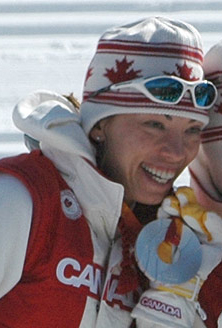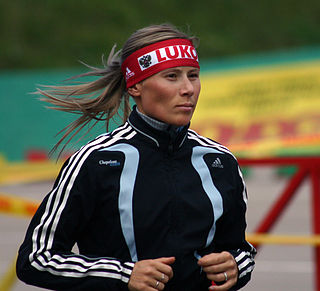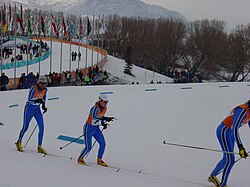
The Winter Olympic Games, also known as the Winter Olympics, is a major international multi-sport event held once every four years for sports practiced on snow and ice. The first Winter Olympic Games, the 1924 Winter Olympics, were held in Chamonix, France. The modern Olympic Games were inspired by the ancient Olympic Games, which were held in Olympia, Greece, from 776 BCE to 394 CE. The Baron Pierre de Coubertin of France founded the International Olympic Committee (IOC) 1,500 years later in 1894, leading to the first modern Summer Olympic Games in Athens, Greece in 1896. The IOC is the governing body of the Olympic Movement, with the Olympic Charter defining its structure and authority. The original five Winter Olympic Sports were bobsleigh, curling, ice hockey, Nordic skiing, and skating. The Games were held every four years from 1924 to 1936, interrupted in 1940 and 1944 by World War II, and resumed in 1948. Until 1992, the Summer Olympic Games and the Winter Olympic Games were held in the same year. A decision to change this was made in 1986, when during the 91st International Olympic Committee session, IOC members decided to alternate the Summer Olympic Games and the Winter Olympic Games on separate four-year cycles in even-numbered years. Also, at that same congress it was decided that 1992 Winter Olympics would be the last to be held in the same year as the Summer Games and that to change the rotation, the games that would be held in 1996 would be brought forward by two years, being scheduled to 1994. After those games, the next were to be held in 1998 when the four-year Olympic Cycle resumed.
Johann Mühlegg is a former top level cross-country skier who competed in international competitions first representing Germany and then Spain, after becoming a Spanish citizen in 1999. He was excluded and disqualified from the 2002 Winter Olympics in Salt Lake City for doping.
The 2002 Winter Olympics, officially known as the XIX Olympic Winter Games, was a winter multi-sport event held in Salt Lake City, Utah, United States, from February 8 to 24, 2002. A total of 2,399 athletes from 77 National Olympic Committees (NOCs) participated in these Games, competing in 78 events in 15 sports and disciplines.

Rebecca "Beckie" Scott is a Canadian retired cross-country skier. She is an Olympic gold and silver medallist, and the first Canadian to win an Olympic medal in cross-country skiing. She is the founder of a national organization dedicated to improving health, wellness and education outcomes for Indigenous youth through sport and play. Scott was Chair of the World Anti-Doping Agency (WADA) Athlete Committee, and gained notoriety for her position during the Russian (2014–2019) doping scandal. She served as an International Olympic Committee member by virtue of being elected to the IOC Athlete's Commission along with Saku Koivu between 2006 and 2014. She is married to the American former cross-country skier Justin Wadsworth. They have two children, Teo and Brynn.

Larisa Yevgenyevna Lazutina is a Soviet-Russian former professional cross-country skier.

Olga Valeryevna Danilova is a Russian cross-country skier who competed from 1991 until she was banned for using performance-enhancing drugs in 2002.

Canada has competed at every Winter Olympic Games, and has won at least one medal each time, one of only six nations to do so. By total medals, the country's best performance was in the 2018 Winter Olympic Games where Canadian athletes won 29 medals. Canada set a new record for most gold medals won by a country in a single Winter Olympics with 14 at the 2010 Winter Olympics in Vancouver, Canada. This achievement surpassed the previous record of 13 gold medals held by the Soviet Union (1976) and Norway (2002). Both Germany and Norway matched the record total of 14 gold medals in Pyeongchang in 2018. This record has since been surpassed by Norway with 16 at the 2022 Winter Olympics.
Walter Mayer is an Austrian Cross-country skier and coach. He won the Vasaloppet in 1980, and finished second in 1992. As a coach, he was banned from the 2006 and 2010 Olympics after blood transfusion equipment was found in a house used by Austrian skiers during the 2002 Winter Olympics in Salt Lake City, Utah. Mayer was accused of blood doping violations and the International Olympic Committee (IOC) announced the ban after a three-month investigation.
Competitors at the Olympic Games have used banned athletic performance-enhancing drugs.

Yulia Anatolyevna Chepalova is a former Russian cross-country skier.

Christian Hoffmann is an Austrian former cross-country skier who began competing in 1994. He won the bronze medal in the 50 km at the 1998 Winter Olympics in Nagano. Four years later at the 2002 Winter Olympics in Salt Lake City, Hoffmann finished second in the 30 km freestyle mass start event to Spain's Johann Mühlegg, but was awarded the gold medal in 2004 upon Mühlegg's blood-doping disqualification of darbepoetin.

The FIS Nordic World Ski Championships 2001 took place February 15–25, 2001 in Lahti, Finland for a record sixth time, previous events being held in 1926, 1938, 1958, 1978 and 1989. These championships also saw the most event changes since the 1950s with the 5 km women and 10 km men's events being discontinued, the 10 km women and 15 km men's events return to their normal status for the first time since the 1991 championships, the debut of a combined pursuit as a separate category, the addition of the individual sprint race for both genders, and the debut of the ski jumping team normal hill event. Extremely cold weather cancelled the women's 30 km event. The biggest controversy occurred when a doping scandal hit the host nation of Finland, resulting in six disqualifications. This would serve as a prelude to further doping cases in cross country skiing at the Winter Olympics in Salt Lake City the following year.
Kaisa Varis is a Finnish retired cross-country skier and biathlete. Her career has been marred by doping convictions: as a cross-country skier, she was involved but not suspended in a doping scandal and in 2003 she was suspended two years for doping use. After her suspension, she returned as a biathlete in 2007, but in 2008 she received a lifetime ban from all International Biathlon Union (IBU) competitions after another positive doping test. However, her lifetime ban was overturned in March 2009 because the Court of Arbitration for Sport ruled that the IBU failed to adhere to correct testing procedures; she remains eligible to compete in biathlon.
The women's 10 kilometre classical cross-country skiing competition at the 2002 Winter Olympics in Salt Lake City, United States, was held on 12 February at Soldier Hollow.
The women's 4 × 5 kilometre relay cross-country skiing competition at the 2002 Winter Olympics in Salt Lake City, United States, was held on 19 February at Soldier Hollow.
The Women's 15 kilometre freestyle mass start cross-country skiing competition at the 2002 Winter Olympics in Salt Lake City, United States, was held on 9 February at Soldier Hollow.
The Women's 30 kilometre classical interval start cross-country skiing competition at the 2002 Winter Olympics in Salt Lake City, United States, was held on 24 February at Soldier Hollow. This was the final women's event of the 2002 Olympics cross-country program.
The 2 × 5 kilometre pursuit cross-country skiing competition at the 2002 Winter Olympics in Salt Lake City, United States, was held on 15 February at Soldier Hollow.











